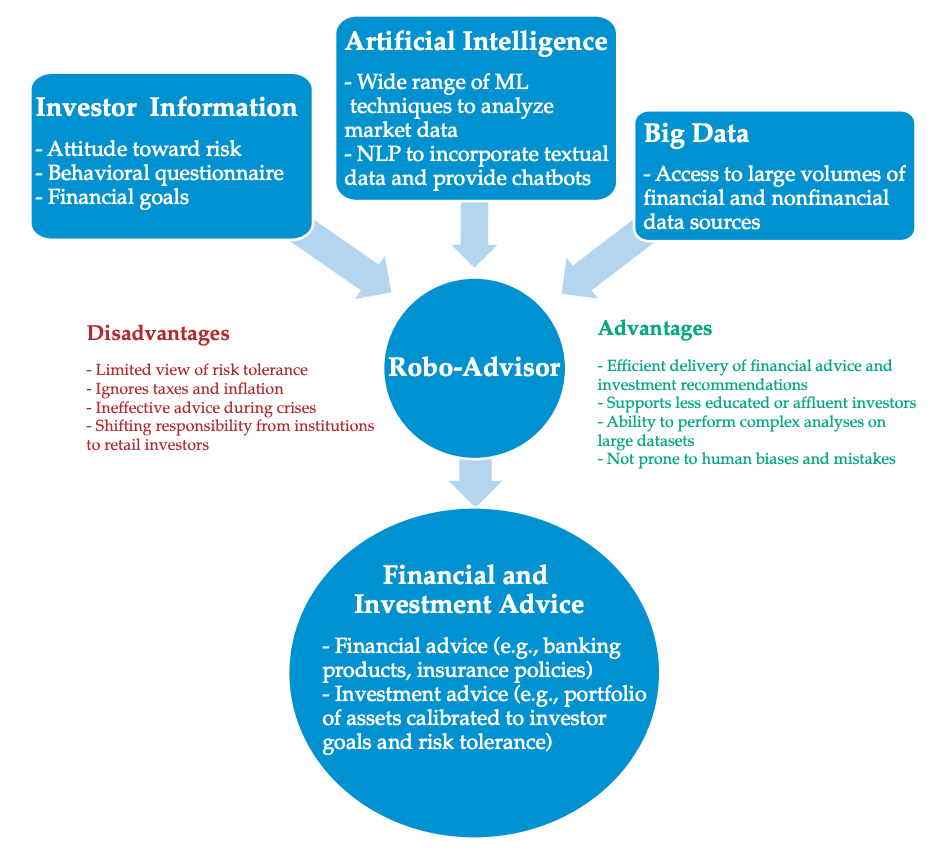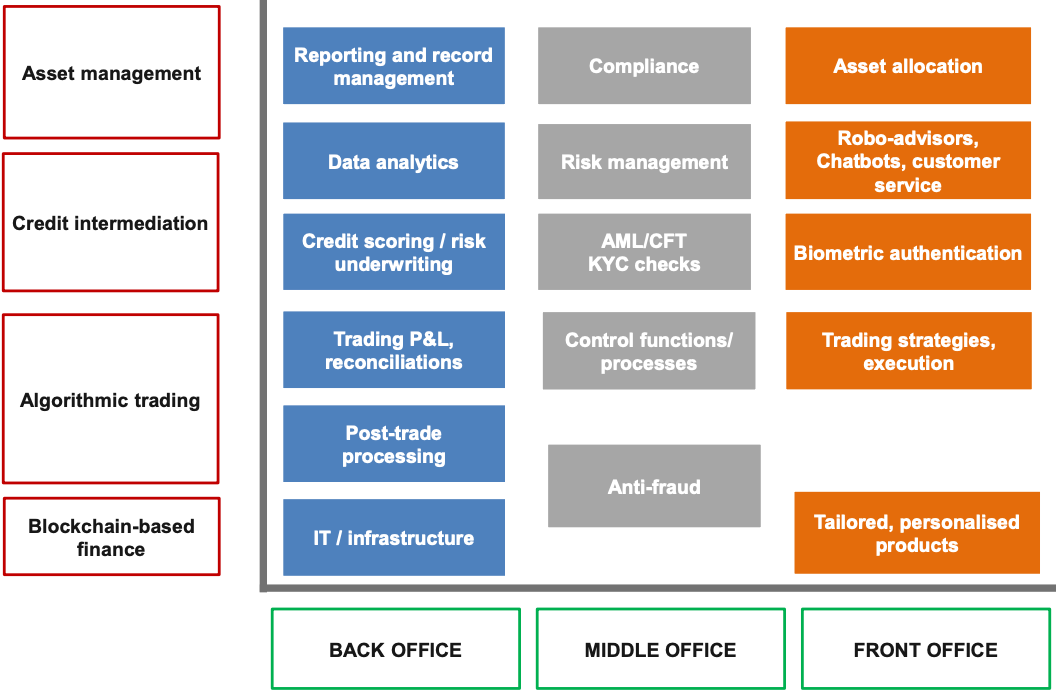From Big Data to Big Profits: How AI is Disrupting Wealth Management and Personal Finance

Artificial intelligence (AI) has disrupted various industries in recent years, and the financial sector is no exception. AI has changed the face of the financial industry by revolutionising the way people manage their wealth and plan their finances.
What is AI?
Artificial intelligence (AI) is the simulation of human intelligence in machines programmed to perform tasks that typically require human intelligence, such as visual perception, speech recognition, decision-making, and language translation. AI algorithms can learn and improve from experience without human intervention and make predictions based on the data they have been trained on.
AI in Wealth Management and Personal Financial Planning
Wealth management involves managing the financial affairs of high-net-worth individuals, families, and corporations. Personal financial planning involves managing the finances of individuals and families to achieve their long-term financial goals, such as retirement planning, saving for children's education and debt management.
AI is used in wealth management and personal financial planning to help individuals make informed financial decisions and to help clients achieve their financial goals by providing personalised investment recommendations and managing their portfolios more effectively and efficiently.
Pros
- Personalisation: AI uses algorithms to analyse data on a client's risk tolerance, financial goals, and investment preferences, which enables individuals to tailor their investment portfolios according to their needs and goals.
- Cost-effectiveness and accessibility: AI is a cost-effective alternative to traditional wealth management and financial planning as it eliminates the need for human advisors. It makes money management more accessible to everyone, regardless of their financial knowledge or experience.
- Improved efficiency: AI algorithms can analyse vast amounts of data in seconds, allowing for more accurate investment recommendations and quicker response times to market changes. It can also automate time-consuming financial tasks thereby reducing the time and effort required to manage finances, freeing up more time for other vital activities.
- Continuous monitoring: AI wealth management tools continuously monitor portfolios, allowing the opportunity to make timely adjustments to meet the client's investment objectives.
- Lower minimum investment requirements: AI-powered investment platforms often have lower minimum investment requirements, making it easier for people with limited funds to access investment opportunities.
Cons
- Limited understanding of human behaviour: AI tools can analyse data, but they may not fully understand the nuances of human behaviour, which can impact investment decisions.
- Lack of a personal touch: AI-powered wealth management tools lack the personal touch of human advisors, which some investors may prefer. As AI cannot consider human sentiment, emotional connection is absent, which may prevent orthodox investors from adopting AI-powered wealth management tools.
- Security concerns: AI-powered finance platforms must be secure to protect sensitive client data to offer personalised advice, which is still a concern for people. This data can be vulnerable to cyberattacks or data breaches, putting individuals' financial security at risk.
- Overreliance on Technology and historical data: AI algorithms rely heavily on historical data to make investment recommendations, which may not be accurate predictors of future performance. While AI tools can provide valuable insights, they should not replace human judgment entirely. Overreliance on technology can lead to poor decision-making and make individuals vulnerable to unexpected market changes.
- Bias in Data Analysis: AI tools are only as unbiased as the data they analyse. If the data is biased or incomplete, the insights generated by AI tools can be flawed, leading to poor financial decisions and perpetuating existing inequalities.
Future of AI in Wealth Management
The future of AI in Wealth Management looks promising as AI tools become more advanced and sophisticated. Some potential developments include:
- Natural language processing: AI tools may be able to understand and interpret human language to provide personalised investment recommendations. Robo-advisors are one example of AI in Wealth Management. Click here to learn more about Robo-advisors.
- Quantum computing: Quantum computing could significantly improve the speed and accuracy of AI-powered investment recommendations.
- Predictive analytics: AI tools may be able to predict market trends and make investment recommendations based on predictive analytics.
- Expansion of AI applications: AI tools may be used in a broader range of financial services, including insurance and lending.

Some applications of AI in Personal Financial Planning
- Portfolio Optimization - AI-powered wealth management and personal financial planning platforms use algorithms to analyze data on stocks, bonds, and other investment options to create optimized portfolios that meet the client's investment objectives.
- AI Budgeting Tools - AI-powered budgeting tools have also gained popularity in recent years. These are digital platforms that use AI algorithms to analyze an individual's spending patterns and provide customized budgeting advice to help them save money and achieve their financial goals.
- Risk Management - AI tools can analyze market data and predict market trends, helping investors to manage risk and make informed investment decisions.
- Retirement Planning - AI tools can help investors create a retirement plan based on their current financial situation, expected future income, and other factors.
- Tax Optimization - AI-powered wealth management platforms can analyze a client's tax situation and provide recommendations to optimize tax liability.

The Hybrid Approach - An Optimal Solution Today?
It's essential to recognise that both human advisors and AI-powered wealth management have their strengths and limitations and that the best approach may be to combine the two.
By leveraging the strengths of human advisors and AI-powered tools, individuals can benefit from personalised attention and expertise, as well as advanced analytics and technology. Hybrid approaches to wealth management are becoming increasingly popular, with human advisors using AI tools to enhance their recommendations and tailor their advice to individual clients.
As AI tools advance and become more sophisticated, they will likely become an increasingly important part of the financial industry. However, human advisors are likely to play an essential role in providing personalised attention and expertise. We hope this newsletter has provided you with valuable insights and information, and we look forward to continuing the conversation about the future of finance with you.
Ciao for now!
Learning Resource Hub
- What is Artificial Intelligence? (AI in 5 minutes!)
- Morgan Stanley's Vision for AI in Wealth Management
- Big Data, Machine Learning, and AI in Portfolio Management
- Will Robots Replace Human Financial Advisors?
1. Mint(Intuit) - Financial Management Tool that helps you track spending, set budgets and manage investments.
2. Wealthfront - Robo-advisor that uses AI algorithms to manage investments and optimise tax efficiency.
3. Kavout - An AI-powered investment research platform that helps you make data-driven investment decisions.
4. Kensho(S&P Global) - AI-powered investment analytics platform that uses natural language processing to analyse financial news and market data.
5. Ayasdi(Symphony Sensa) - AI-powered platform that helps financial institutions detect and prevent fraud, as well as optimise risk management and compliance.

We hope you enjoyed this edition of our newsletter. If you found it helpful, please consider sharing it with others who might benefit from this information.
At Orelia Capital, we believe that feedback is a gift. Your feedback can help us improve our content and provide more value to our readers.





